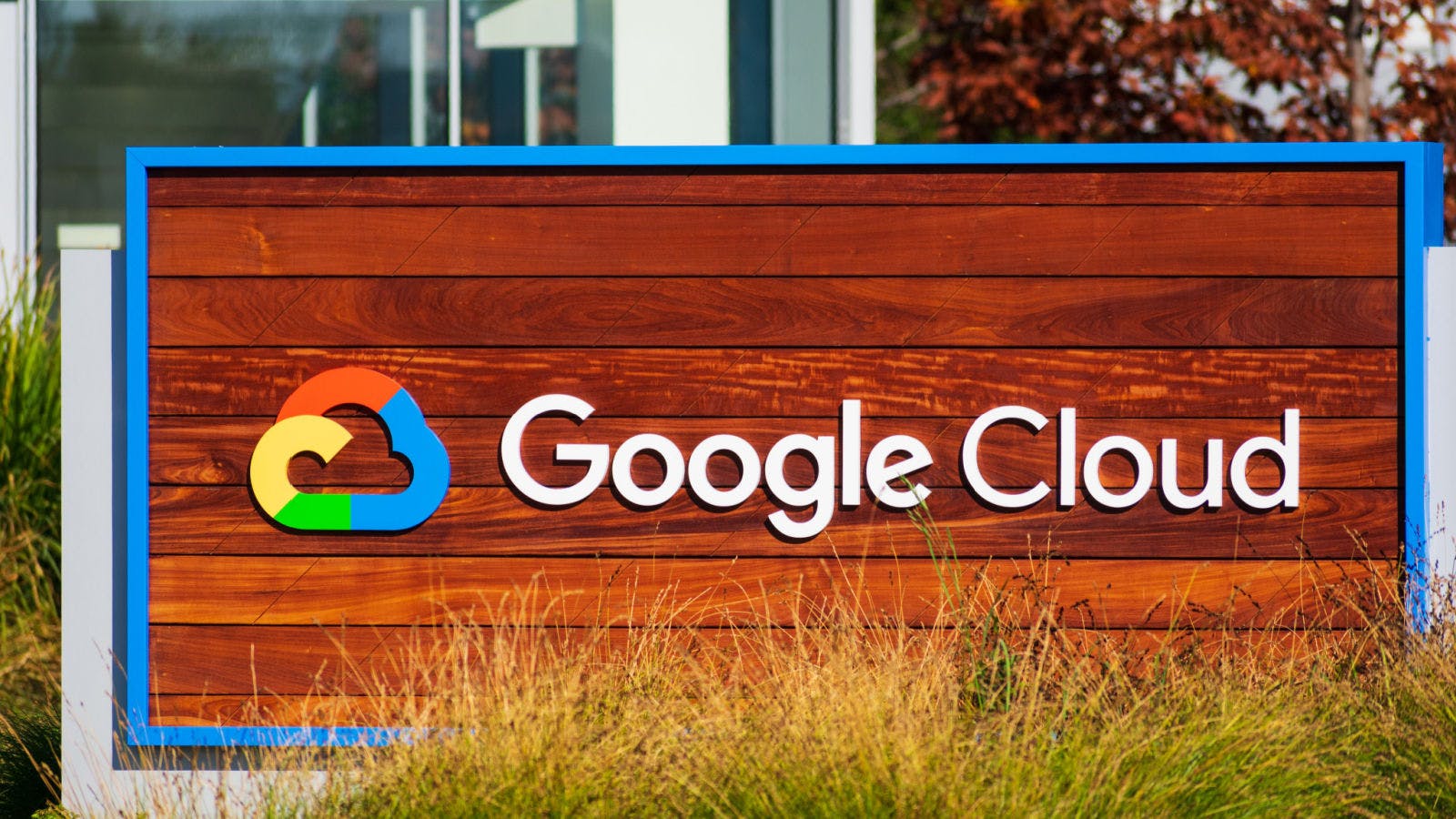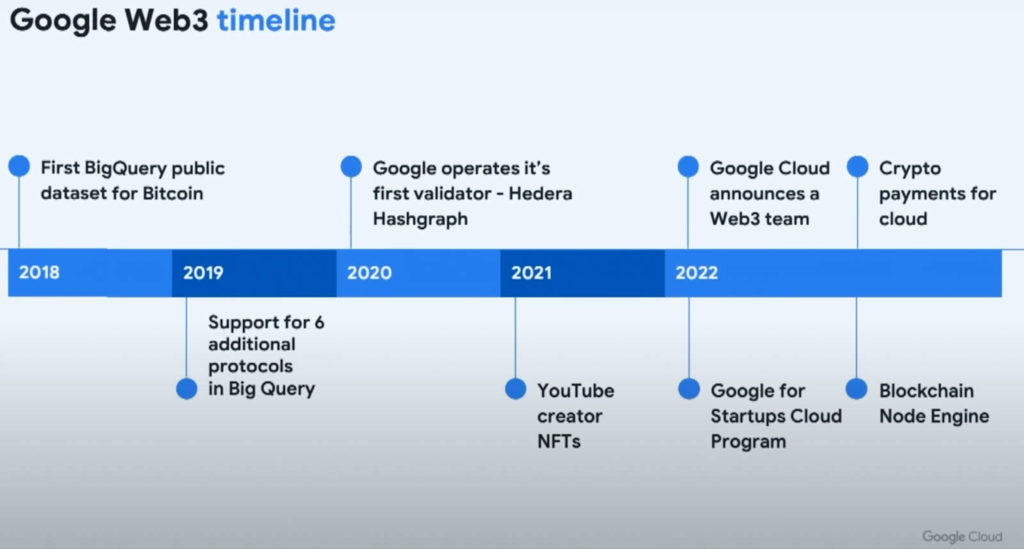Google Signals Major Crypto Push With Ethereum, Solana Support
Google Cloud has recently moved to support Web3 infrastructure, debuting fresh integrations with competing blockchains Ethereum and Solana

Source: Shutterstock
Google Cloud has trumpeted a series of collaborations with popular blockchain networks Ethereum and Solana in recent weeks, accelerating the tech giant’s support of Web3.
Late last month, Google Cloud announced a node-hosting service for Web3 developers called the Blockchain Node Engine. The tool is designed to help build and deploy on blockchain-based applications and platforms.
Ethereum is the first blockchain supported by the engine. Rival network Solana is to follow soon, per a tweet over the weekend. The post sparked a near-20% rally for the network’s native token, although it has since given up most of those gains.
“Web3 companies who require dedicated nodes can relay transactions, deploy smart contracts, and read or write blockchain data with the reliability, performance, and security they expect from Google Cloud compute and network infrastructure,” Google Cloud executives Amit Zavery and James Tromans said in a statement.
During this weekend’s Breakpoint 2022 conference in Lisbon, an event held by the Solana Foundation, Google’s Web3 lead Nalin Mittal explained that Google has really deepened its investment in the Web3 space throughout 2022. This has culminated in the formation of a dedicated Web3 team at Google Cloud.
“This is like a natural evolution for us because we saw a lot of our financial services crypto-native gaming customers do more and more blockchain-related workloads on [Google Cloud] and it was clear that a dedicated product suite for Web3 would serve them better,” Mittal said.
The Big G has indeed been busy backing crypto-native companies. Google parent Alphabet participated in four funding rounds in blockchain firms between September 2021 and June 2022, including crypto conglomerate Digital Currency Group and Dapper Labs, the Web3 startup behind NBA Top Shot.
Google Cloud runs validators on Solana, alongside other blockchains
This weekend, Google Cloud tweeted to confirm that it’s participating in Solana consensus by running a validator, a special kind of server node that processes transactions by adding blocks to the network’s chain.
But it’s not the first time Google has opted into a blockchain network. It began operating its first validator for proof-of-stake network Hedera Hashgraph in 2020. According to Mittal, the cloud unit now operates validators for a “lot of the top [layer-1] protocols.”
“We recognize how active and passionate [the Solana] community is, and we want to make it a top priority for Google Cloud,” Mittal said. Google Cloud will soon accept crypto payments for certain customers via a partnership with Coinbase announced last month.
 Image Source: Solana/YouTube
Image Source: Solana/YouTube
Google Cloud’s move into Web3 infrastructure mirrors Amazon’s offering, Managed Blockchain, which has supported Ethereum nodes-as-a-service since last year.
While Solana is known for its cheap and quick transactions, the network has suffered a bumpy road with five major outages this year alone. Even so, the network remains among the most functional protocols in the Web3 ecosystem today, according to James Wo, CEO of investment firm DFG.
“Solana has a very robust cluster of DApps, NFTs, and smart contracts running on it, which accounts for what Google Cloud needs to build a robust portfolio of innovative and futuristic Web3 applications,” Wo told Blockworks.
“The embrace of Solana by Google Cloud is just another avenue to deepen its footprint, seeing as it has inked related deals with other Web3 projects, including NEAR, Hedera, and Aptos, among others.”
Get the news in your inbox. Explore Blockworks newsletters:
- The Breakdown: Decoding crypto and the markets. Daily.
- 0xResearch: Alpha in your inbox. Think like an analyst.






